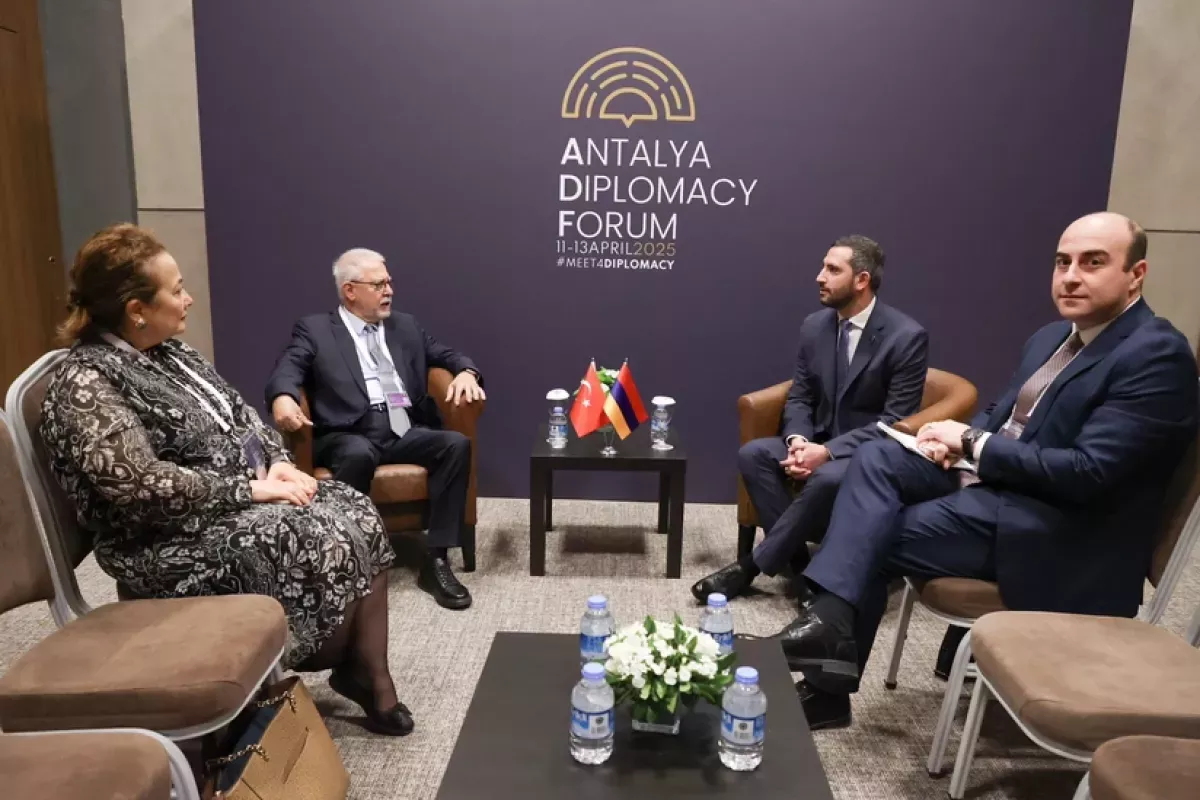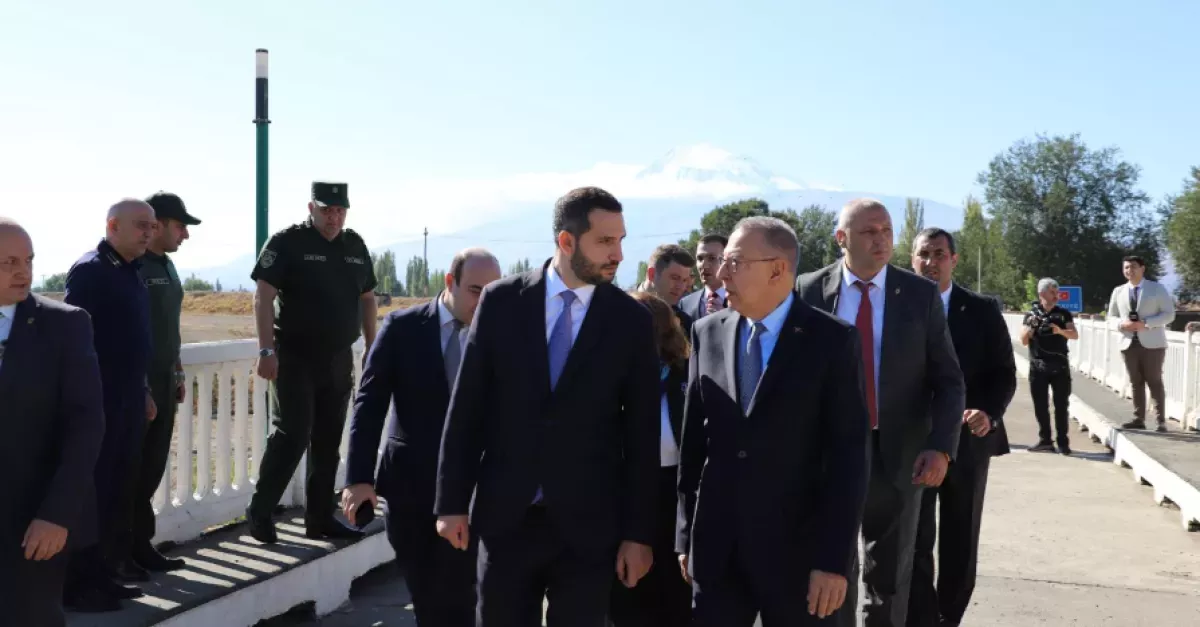Armenia–Türkiye dialogue: door to future opens through Baku A step towards a new regional architecture
The historic agreements reached in Washington on August 8 during the meeting of the leaders of Azerbaijan, Armenia, and the United States have also given new impetus to the Armenia–Türkiye normalisation process. Thus, last week the sixth round of negotiations was held between the special representatives for normalisation – Turkish Ambassador Serdar Kılıç and Deputy Speaker of the Armenian National Assembly Ruben Rubinyan. During the meeting, the sides reaffirmed the agreements previously reached and discussed steps for implementing the accords on border crossings of July 1, 2022.
The last meeting between the special representatives took place on the sidelines of the Antalya Diplomacy Forum in April this year, after which Rubinyan left a positive comment on his X social media page. “Had a good discussion on Armenia–Türkiye normalisation process with Serdar Kılıç in the Diplomacy Forum,” he wrote at the time.

Background: Türkiye and Armenia have no diplomatic relations, and their border has been closed since 1993. Since 2022, Yerevan and Ankara have been holding talks at the level of special representatives on opening the border for third-country citizens and normalising relations.
Statements by the Armenian authorities about their readiness to normalise relations with Türkiye and open the Armenian–Turkish border have been voiced since the very beginning of the post-conflict period.
However, the Turkish side has consistently adhered to the position that opening the border with Armenia is only possible under the condition of normalisation of Armenian–Azerbaijani relations and, consequently, the signing of a comprehensive peace treaty – a stance once again reaffirmed just days ago by Turkish Foreign Minister Hakan Fidan.
“Türkiye will immediately launch the process of normalising relations with Armenia – as soon as the final signature is put on the peace agreement between Baku and Yerevan,” he said, speaking in Italy at a conference organised by the Italian Institute of International Affairs.
Thus, a consistent chain emerges: in order to open the Armenian–Turkish border, a final peace agreement between Baku and Yerevan must be signed, and for this to happen, the Armenian side must amend its constitution by fully removing territorial claims against Azerbaijan.
Nevertheless, the Armenian side still harbours the illusion that this issue can be resolved outside the framework of a peace agreement with Baku. Representatives of official Yerevan repeatedly state that Armenia is ready to open borders and establish diplomatic relations with Türkiye at any moment. In particular, Ruben Rubinyan, speaking to journalists ahead of Serdar Kılıç’s visit to Yerevan, stressed that he sees no reason for Türkiye to delay the opening of the border with Armenia.
“From the Armenian side there are no issues with delays. We are ready to open borders and establish diplomatic relations as early as tomorrow,” he said, noting that the republic had recently established diplomatic relations with Pakistan.
“This was a very significant development. I hope we will take a similar step with regard to Türkiye,” Rubinyan emphasised.

Undoubtedly, the opening of the Turkish border is of great importance for Armenia, especially given its economic dependence on Russia – a fact also confirmed by leading international financial institutions. For example, according to World Bank estimates, Armenia’s export potential to Türkiye amounts to between 15% and 19% of Armenia’s GDP.
Meanwhile, according to data from the German advisory company German Economic Team, the opening of direct trade between the two countries would increase Armenia’s export share to Türkiye to 6.7% of its total exports, while imports from Türkiye could reach 12.8% of Armenia’s total imports.
Furthermore, according to forecasts by the Asian Development Bank (ADB), if borders with Türkiye and Azerbaijan are opened, Armenia’s foreign trade deficit could be reduced by 30% and even up to 50%.
All these figures clearly demonstrate that for Armenia, the normalisation of relations with Türkiye is a significant economic factor, which also entails the unblocking of transport communications.
It is no coincidence that during Serdar Kılıç’s visit to Armenia, the two sides decided that the relevant authorities would carry out the necessary technical work to restore and put into operation the Kars–Gyumri railway line and the electricity interconnector line, as well as to prepare for interested companies to begin operating flights on various routes from the summer of 2026, thereby increasing the number of flights between the two countries.
The progress observed in the Armenia–Türkiye normalisation process is undoubtedly a positive signal for the South Caucasus region. However, the Armenian–Turkish border will only open once the Armenian authorities fulfil Baku’s key condition. Armenia has no other option, nor will it ever have one.








